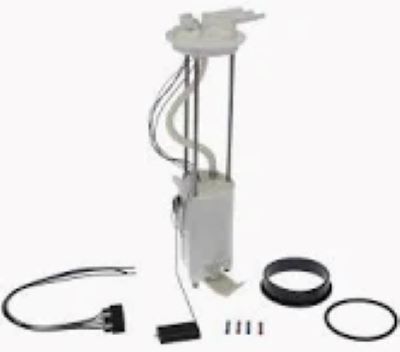Environmental regulations for fuel pumps are focused primarily on those two goals: minimizing emissions and improving fuel economy in cars, as part of the broader effort to cut human environmental impact. One such rule is EPA Tier 3 standards in the U.S., where strict limits are placed on evaporative emissions from fuel systems, which can also include an requirement for low leakage rates for fuel pumps. Vapor emissions limits that must be met by fuel pumps to minimize the escape of volatile organic compounds (VOCs) in the air as set forth by these rules. According to these regulations the fuel system, including the pump, must meet an evaporative emissions limit of 0.3 grams per mile which will result in cleaner air supplies overall
The European Union has its Euro 6 regulations, and these have been on par with U.S. regs in regulating emissions of nitrogen oxides (NOx) and particulate matter. The fuel pump has to work within a system that makes sure the emissions of harmful NOx gases from diesel vehicles do not exceed 80mg/km, and petrol cars are not allowed over 60mg/km. Naturally, it would be the environment standpoint that is representative of this sensibility as many of these regulations drive the development of high-efficiency fuel pumps that deliver only what the engine demands, eliminating waste combustion and thus emissions.
New regulatory requirements for fuel pumps are being driven by the move toward alternative fuels, like E85 ethanol and biodiesel. For instance, the California Air Resources Board (CARB) established pump standards for dispensers that handle alternative fuels (specifically ethanol-based products), and required those pumps to incorporate corrosion-resistant components in order to withstand exposure without leaks or degradation. Prevents Fuel System Failures And Reduces Emissions From Worn Parts

An increasing emphasis on fuel economy is also influencing how fuel pumps are being designed and operate to meet these regulations. With the US Corporate Average Fuel Economy standards set to require all automakers to achieve a fleet-wide average of 54.5 miles per gallon by 2025, car companies are going to be under constant pressure to deliver fuel pumps that use less energy, but maintain precise fuel pressure at all times. More and more, high-efficiency demands are meeting their match in the form of variable speed pumps that can adjust -- and readjust -- pump fuel delivery based on real-time engine demand.
That leads us to the obvious question:How, praytell, do fuel pumps affect whether or not a vehicle is emissions compliant? In terms of the entire fuel system, because they can effect fuel combustion, and evaporation efficiency is integral to the function of a vehicle=% Leaking or sub-par parts are leaky output of the pump to consume too much fuel and incomplete combustion, which all increase emissions. A clean combustion system demands proper fuel pressure which, in turn, ensures that the fuel pump reduces emission of pollutants like CO2 and NOx. Even according to a 2020 study, fuel system inefficiencies could lead to an increase in vehicle emissions of 15-20%, highlighting the importance of innovative fuel-pump technologies that meet regulatory demands.
In the words of Elon Musk, 'The future is taking responsibility for your cleaning habits. In the automotive industry, this is particularly true of developments in fuel pump technology which are needed to be able fulfil goals for environmental protection and at the same time improve performance properties of motor vehicles.
The post Modern-Day Fuel Regulations And How They Impact Fuel System Efficiency!